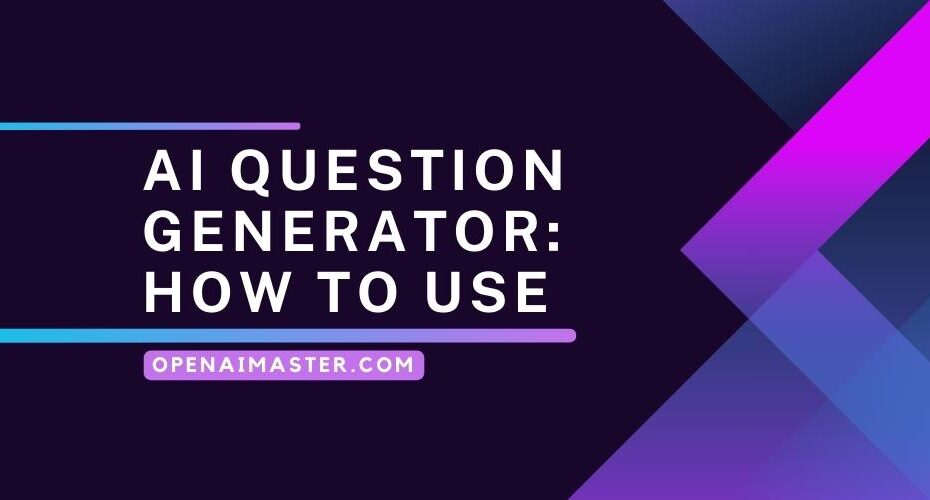Artificial intelligence (AI) continues advancing assessment creation in education, with over 60% of institutions projected to adopt AI-based testing tools by 2025 (HolonIQ, 2022). Question generators are at the forefront, using AI to automate the laborious manual processes of producing quality MCQs.
However, manually formulating quiz questions consumes several hours while being prone to inaccuracies – severely limiting assessment flexibility for educators. AI question generators overcome these bottlenecks through automation.
In this guide, we will unlock the inner workings of smart AI algorithms powering modern question generators while providing practical tips to harness them.
AI Techniques Powering Question Generators
Let‘s unbox the key AI techniques utilized:
Natural Language Processing
Advanced NLP algorithms break down language complexities in source content to identify topics, concepts, named entities and semantic relationships – forming an machine-readable comprehension of the subject matter.
Information Extraction
Specialized algorithms further analyze this NLP output to extract key elements like places, dates, names, events etc. and convert into multiple choice questions templates testing these aspects.
Semantic Search
Question generators also use semantic matching to search across its database of existing questions and suggest similar questions on related concepts identified in the input text.
Overcoming language complexities poses significant challenges. Tools like Quizbot use canonicalization – converting different textual representations of a concept into a standard form. This enhances NLP-based comprehension.
Innovations in Neural Question Generation
Recent advancements in neural question generation using seq-2-seq architectures and reinforcement learning are also supercharging question quality:
- Seq-2-seq models better handle complexity by directly mapping source text to target questions.
- Reinforcement learning optimizes this mapping through user feedback on question utility.
These innovations show the rapid progress in AI to transform assessment creation.
Comparing Leading AI Question Generators
Here is an overview comparing capabilities of top question generators:
| Generator | Customization | Analytics | Mobile Access | Languages |
|---|---|---|---|---|
| Quizbot | ★★★★☆ | ★★☆☆☆ | ✔ | EN, SP, FR |
| Kahoot | ★★☆☆☆ | ★★★☆☆ | ✔ | EN, SP |
| OpExams | ★★★☆☆ | ★★★★☆ | ✔ | EN, CH |
| QuestionWell | ★★★★☆ | ★★☆☆☆ | ❌ | EN |
As visible, Quizbot leads in parameters like customization while OpExams excels in analytics. Educators can weigh these factors as per their specific institutional needs.
Integrating Question Generators into Assessment Platforms
Most generators provide question banks in versatile formats like DOCX, XML, QTI compatible with assessment platforms such as:
- Canvas LMS
- Moodle
- Google Classroom
For instance, Kahoot enables directly pushing questions to popular LMS systems using the provided plug-ins – simplifying integration.
"XZde9mUXEfc"This ease of assimilation with existing education infrastructure accelerates adopting question generators.
The Future of AI-Powered Assessments
Question generators showcase how AI can transform legacy assessment methods. As generative AI keeps advancing, the next frontier is dynamic question generation from video lectures leveraging speech recognition and NLP. Tools by startups like BunsenLearning and CurveEd are pushing such innovations.
This offers an exciting vision for educators to exponentially enrich, diversify and scale assessments powered by AI.
I hope this guide served as helpful resource to comprehend question generator capabilities and harness them effectively per your needs. Please feel free to reach out for any assistance or queries!
